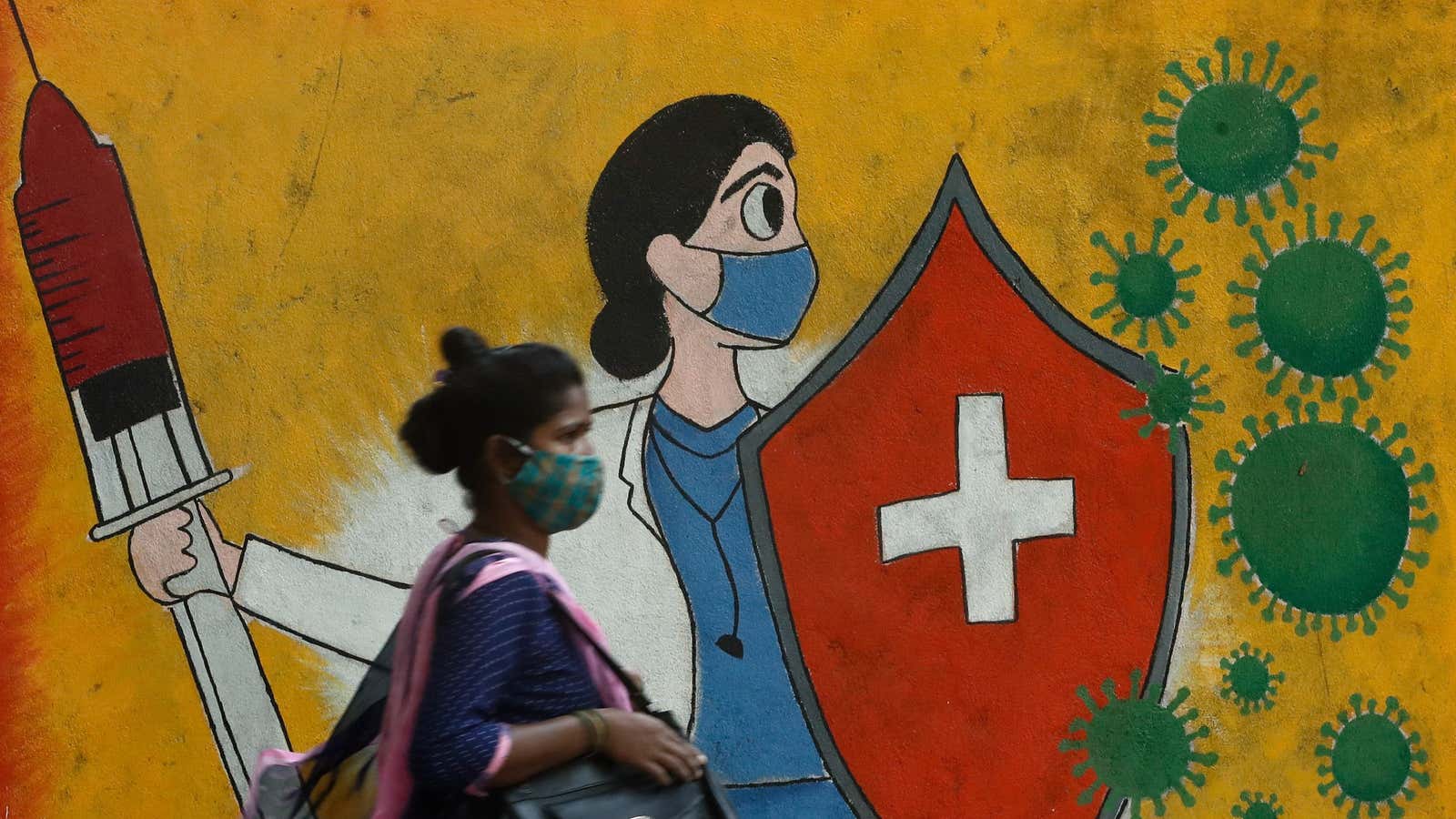India’s financial capital, battered by the second wave of Covid-19, could already be staring at an imminent third wave—and soon.
The western state of Maharashtra, of which Mumbai is the capital, could see the third wave of Covid-19 as early as in the next two to four weeks. The predictions and warnings from the state government’s health department are a consequence of several cities lifting their restrictions and life returning to a crowded normal.
By the government’s own projections, the state could see twice as many cases of Covid-19 in the new wave as it did in the second wave, according to the Times of India newspaper.
“Uncontrolled crowds and disregard for Covid norms like wearing of masks and avoiding non-essential movement are worrisome,” an unnamed official, present at the meeting between chief minister Uddhav Thackeray and the government’s Covid-19 task force, told Times of India newspaper. “Even in Mumbai, with certain time restrictions in place, there is free movement throughout the day.”
Maharashtra was one of the worst-hit states during India’s second Covid-19 wave and saw nearly half of India’s total new daily cases in March and early April. It was one of the first states where India’s pandemic horrors overwhelmed the healthcare system.
The state’s health department also believes that those from the lower-middle class are likely to be impacted more during the possible third wave. The threat to children, though once believed to be greater in the next wave, will likely follow the patterns of the previous wave and remain low.
One of the reasons why the third wave is expected so soon in Maharashtra is the new Delta Plus variant.
The Delta variants
A mutation of the novel coronavirus, first detected in India, is likely the cause behind the rapid surge in cases in cities like Delhi and Mumbai. The B.1.617.2 or Delta variant is nearly 60% more transmissible than the Alpha variant (or B.1.1.7), which was first found in the UK.
Studies in the UK have shown that the Delta variant could lead to more hospitalisations and make vaccines less effective.
For instance, a single dose of the AstraZeneca vaccine, administered as Covishield in India, is only 33% effective against the Delta variant, and has a reduced efficacy of 60% after two doses, according to data analysed by the UK’s Public Health England (PHE).
But while efficacy against infection is reduced, the vaccine is believed to prevent 92% of hospitalisations. In this light, it is even more crucial to fully vaccinate as many people as possible. Dr Shashank Joshi, a member of the Maharashtra government’s Covid-19 task force, has stressed the importance of vaccinations in preventing the destruction of a possible third wave. “Unless 70% of the people are vaccinated, it will not be right to open up the city,” he told India Today.
A Delta Plus variant, which has an additional mutation, is now a cause of concern. Officials in the Maharashtra government believe this variant could “spread at double the rate.” VK Paul, a member of the Indian government’s think tank Niti Aayog, has said that this particular mutation is only a variant of interest at this stage and has not been flagged as a variant of concern.
